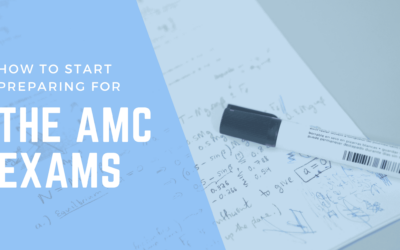I can’t make this stuff up: three days after I reposted my 2012 essay in response to an article by a grown-up taking the SAT, Forbes published this article about — you guessed it — a (different) grown-up taking the (new) SAT. I can’t resist the karmically-ordained opportunity to comment.
First, let me address the assertion “it’s all about speed”: no controversy there; it’s completely correct. Though I would frame it as “the SAT tests fluency over surface knowledge,” it’s the same thing. You can’t spend 30 seconds (i.e. an eternity!) trying to remember a formula on this test.
On a related point, let me just observe that this is a trait that the “revised SAT” — first given in March 2016 — shares with its primary competitor the ACT, but not with its predecessor (at least, not to this degree).
Next up: “The test is designed to trip you up if you work too quickly (and make) a careless error of a particular type.”
Also true. The SAT is a test of meticulousness, and has been for over a decade. Perhaps even for its whole history.
“Doing well on the SAT requires that you know the tricks of the test, and that you’ve memorized many formulas so that they come to mind instantly.”
Yes, but those are hardly “tricks of the test.” Knowing the formulas that they tell you to know is table stakes, nothing more.
“…they haven’t yet figured out how to construct good stats questions.”
That may be true, but the author’s example rings hollow: sampling only 117 people from a “large town” is simply not the same order of error as surveying a local restaurant on a Saturday to determine the population’s sports-watching preferences. After all, that restaurant either has the game on or it doesn’t; either way, there’s a clear sampling error, the cardinal sin of statistics.
“…there’s not a single question on any of the practice math SAT exams that I would call difficult.”
I’m probably supposed to debate this point, but there’s no sense in doing so, because he’s basically spot-on. At the core, this is the chief problem with the test, at least for top-tier students. Always has been, and it’s worse now than before. The test is simply not good at distinguishing very good students from great thinkers, nor very good thinkers from great thinkers.
But what college admissions needs more than to make the SAT optional (as the author advocates) is to replace it or at least supplement it with better tests of high achievement. As the author himself points out, “they could go a long way towards a better test by simply giving students twice as much time. If that made the test too long, they could simply ask fewer questions.”
Right you are, sir. And it’s been done! That’s the very reason for which tests like the AMC12, USAMTS, and AIME (and to a lesser degree the Math 2 Subject Test) exist: to give truly outstanding students an opportunity to shine based on math ability rather than speed and meticulousness under pressure.




0 Comments